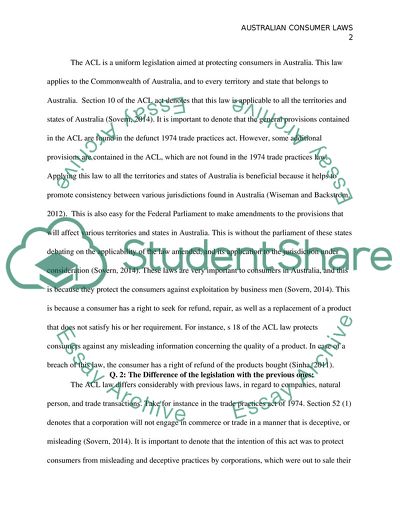Cite this document
(Australian Consumer Laws Coursework Example | Topics and Well Written Essays - 2000 words - 1, n.d.)
Australian Consumer Laws Coursework Example | Topics and Well Written Essays - 2000 words - 1. https://studentshare.org/law/1819726-business-law-s-18-of-the-australian-consumer-law-within-the-competition-and-consumer-act-2010-acl
Australian Consumer Laws Coursework Example | Topics and Well Written Essays - 2000 words - 1. https://studentshare.org/law/1819726-business-law-s-18-of-the-australian-consumer-law-within-the-competition-and-consumer-act-2010-acl
(Australian Consumer Laws Coursework Example | Topics and Well Written Essays - 2000 Words - 1)
Australian Consumer Laws Coursework Example | Topics and Well Written Essays - 2000 Words - 1. https://studentshare.org/law/1819726-business-law-s-18-of-the-australian-consumer-law-within-the-competition-and-consumer-act-2010-acl.
Australian Consumer Laws Coursework Example | Topics and Well Written Essays - 2000 Words - 1. https://studentshare.org/law/1819726-business-law-s-18-of-the-australian-consumer-law-within-the-competition-and-consumer-act-2010-acl.
“Australian Consumer Laws Coursework Example | Topics and Well Written Essays - 2000 Words - 1”. https://studentshare.org/law/1819726-business-law-s-18-of-the-australian-consumer-law-within-the-competition-and-consumer-act-2010-acl.


